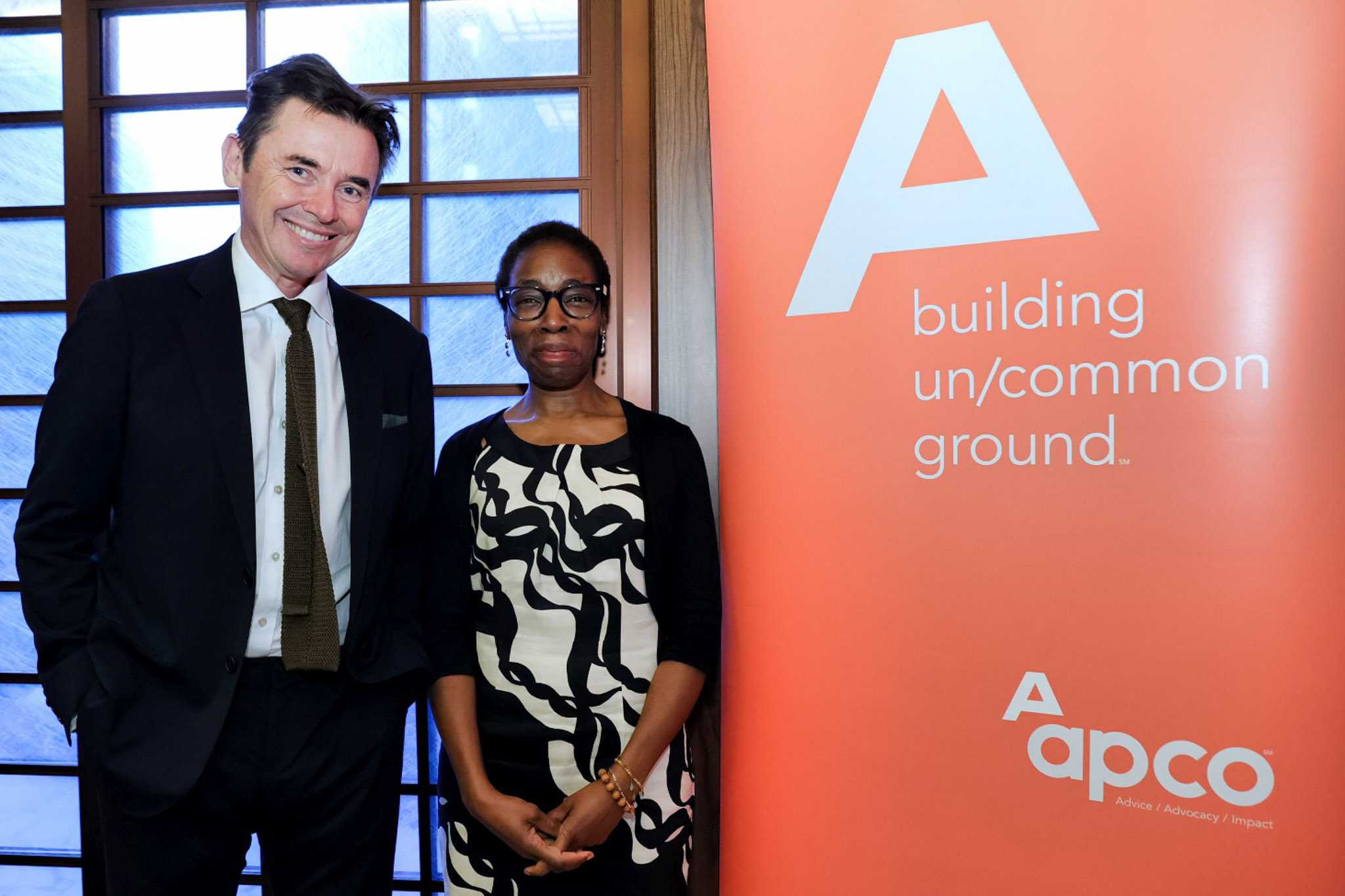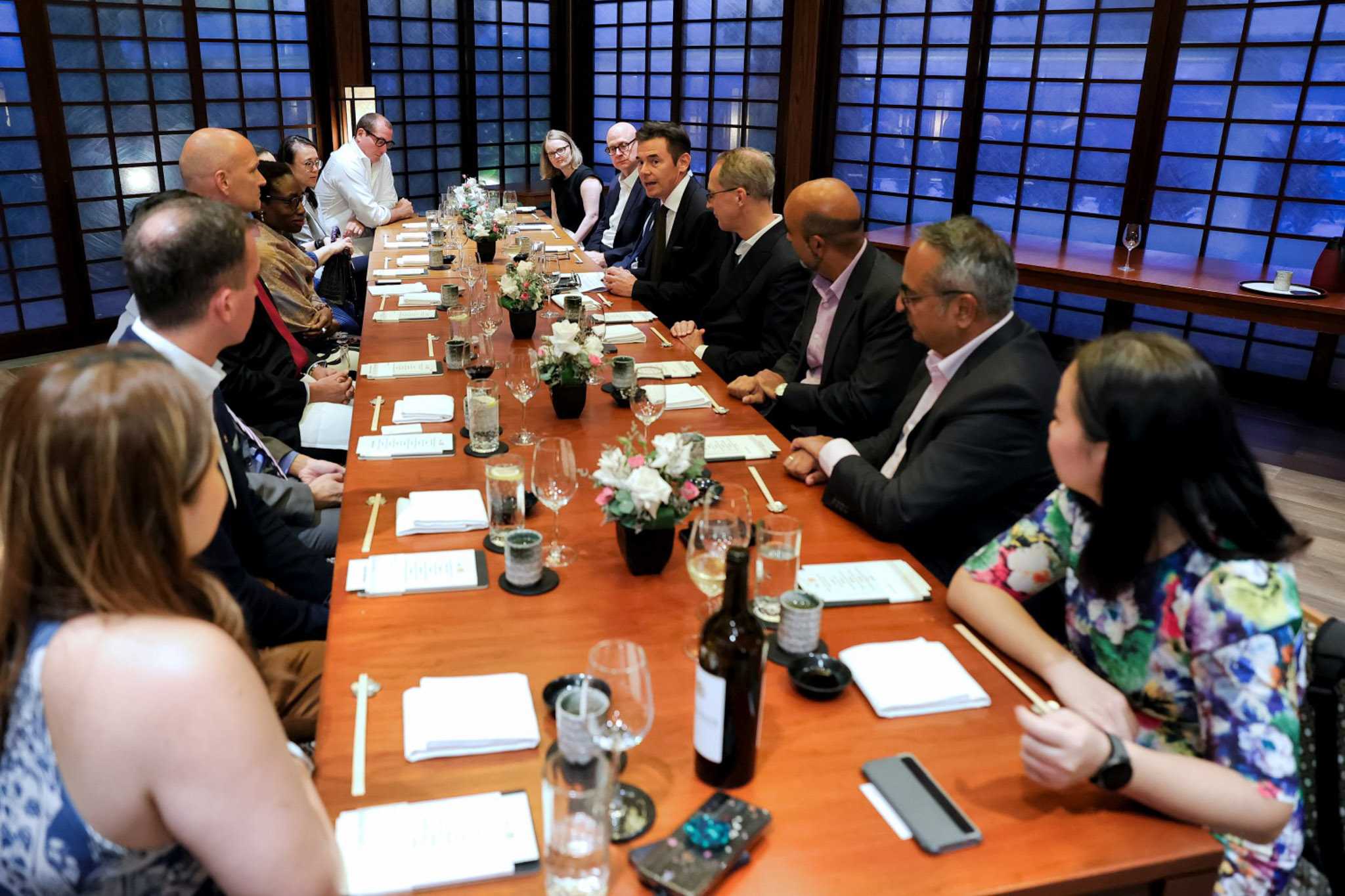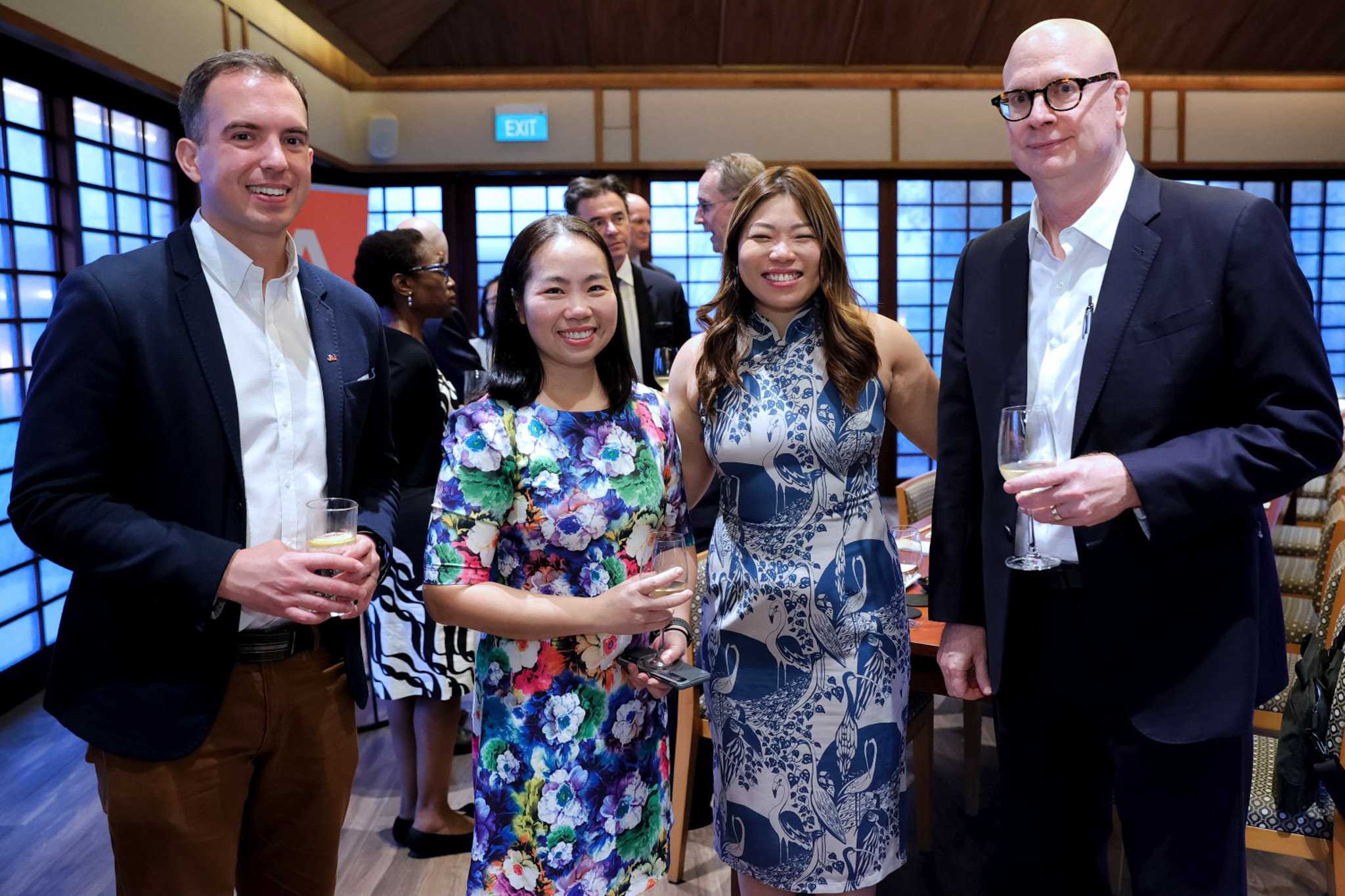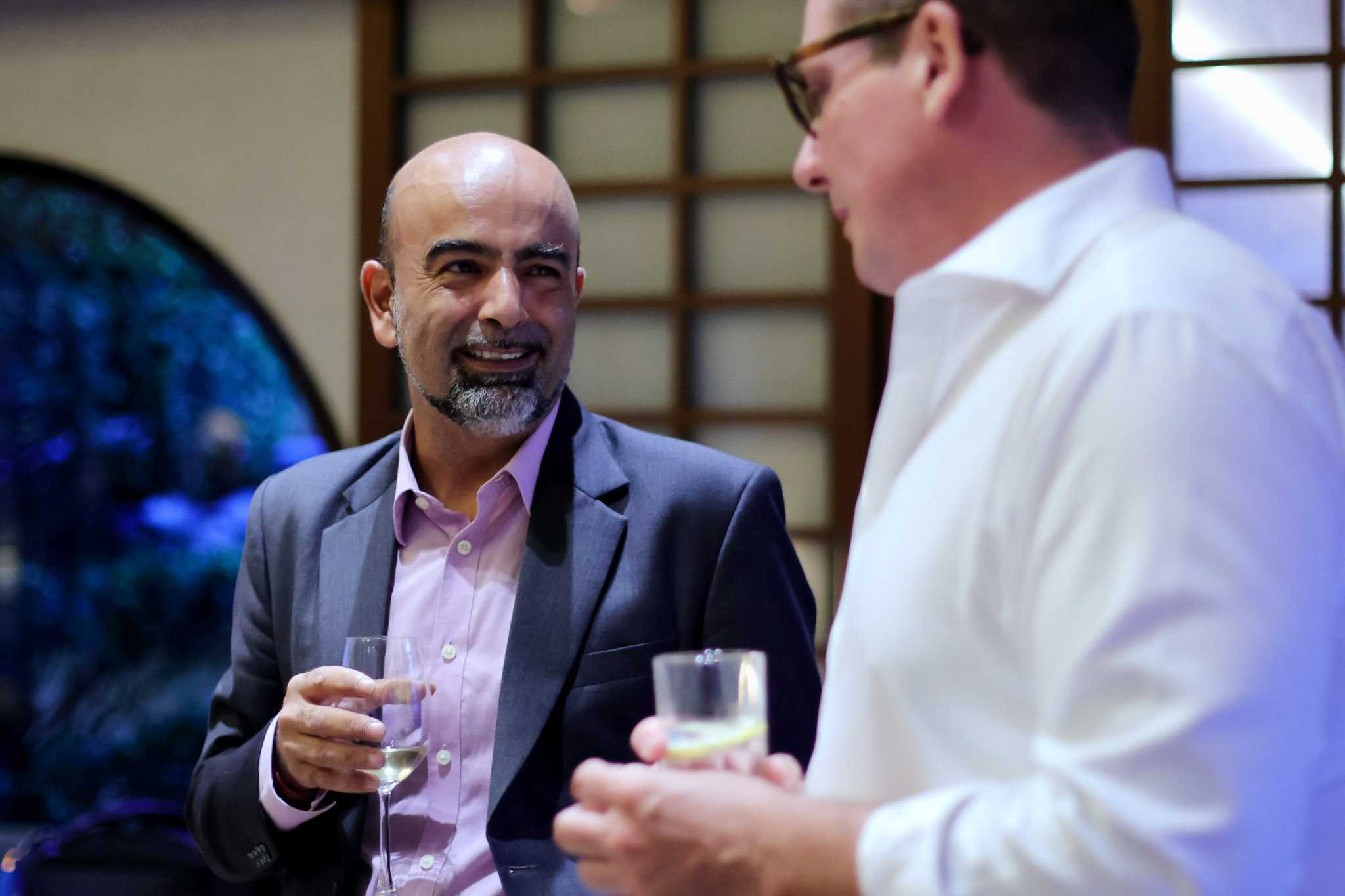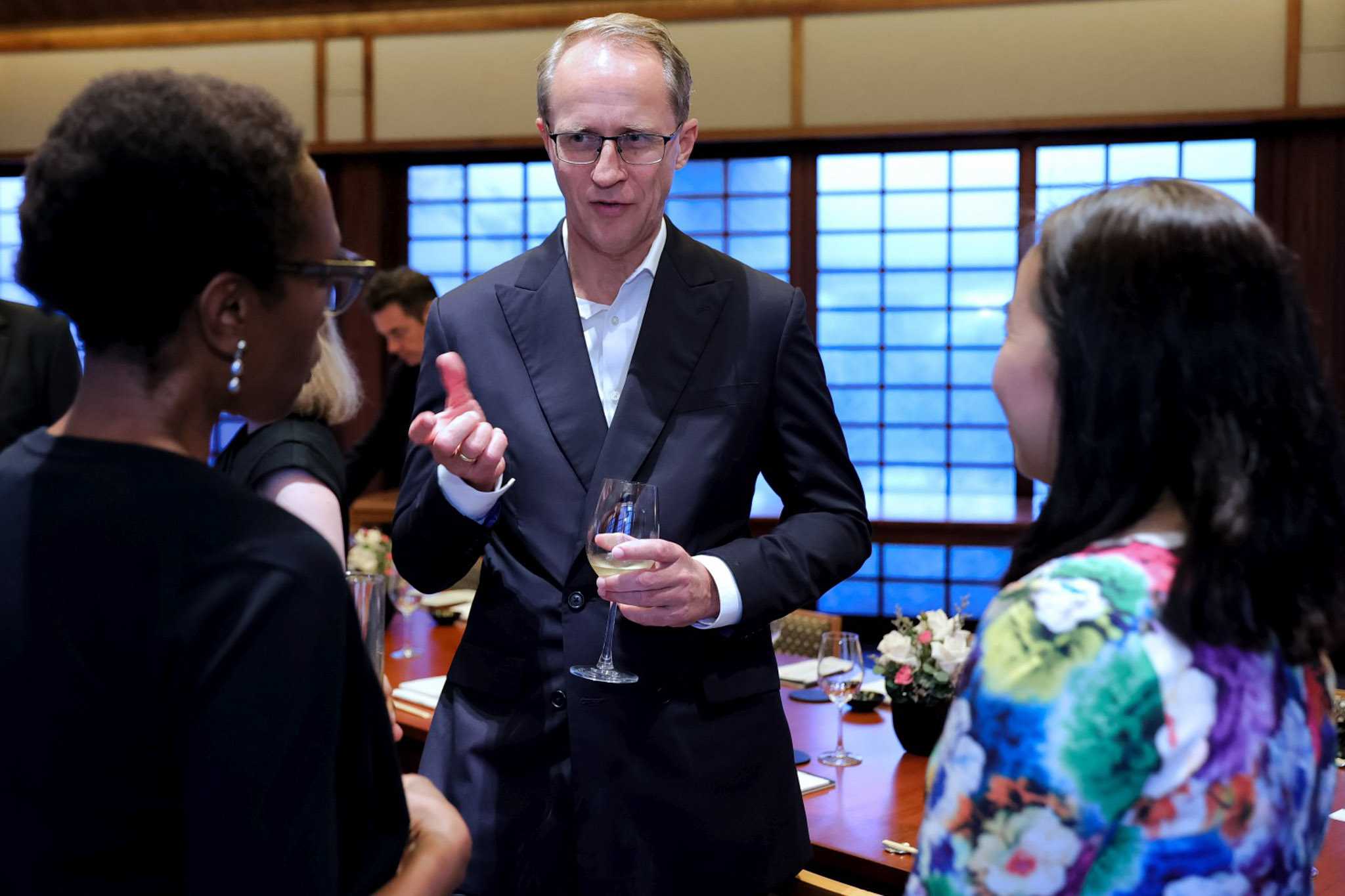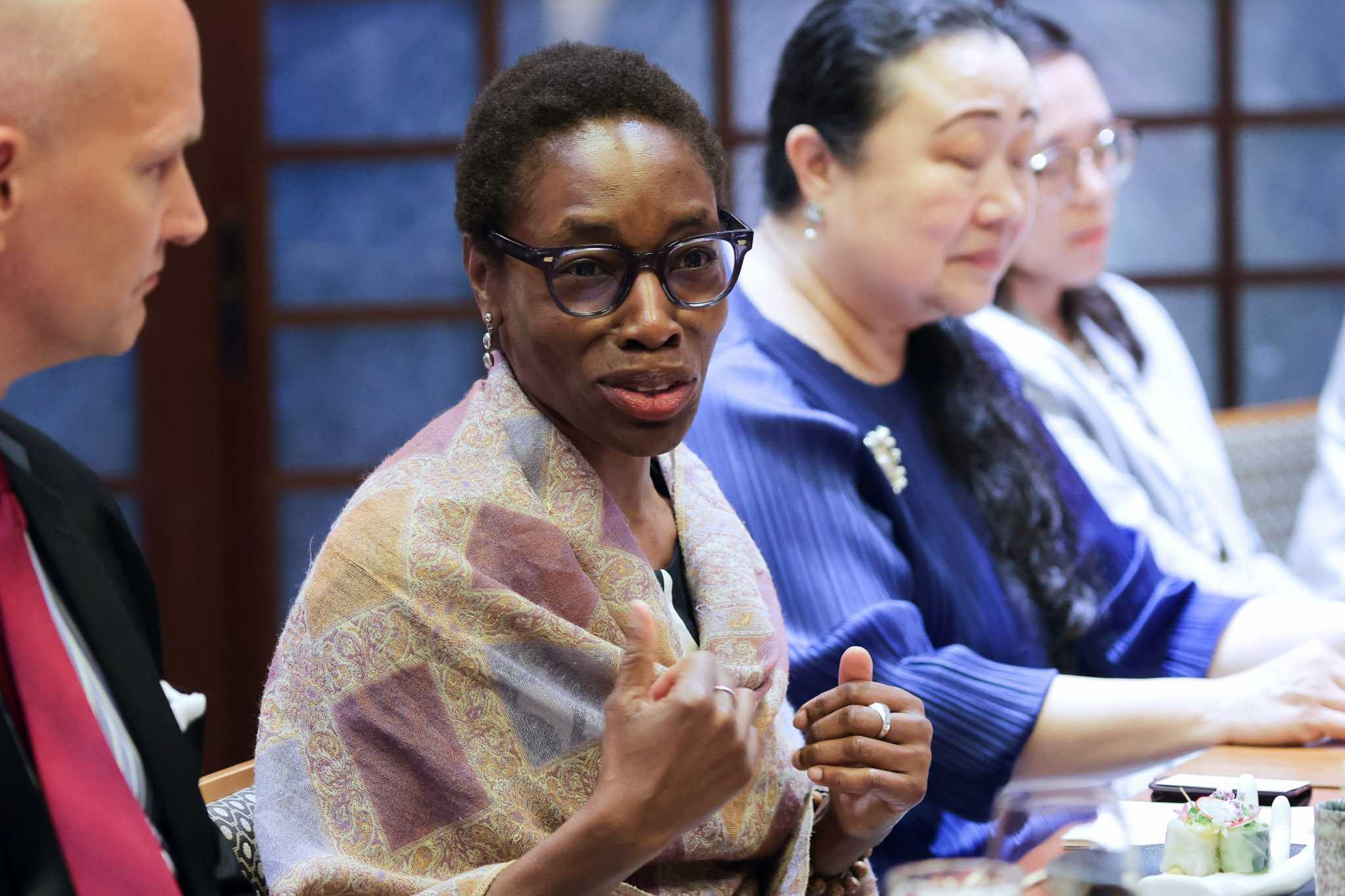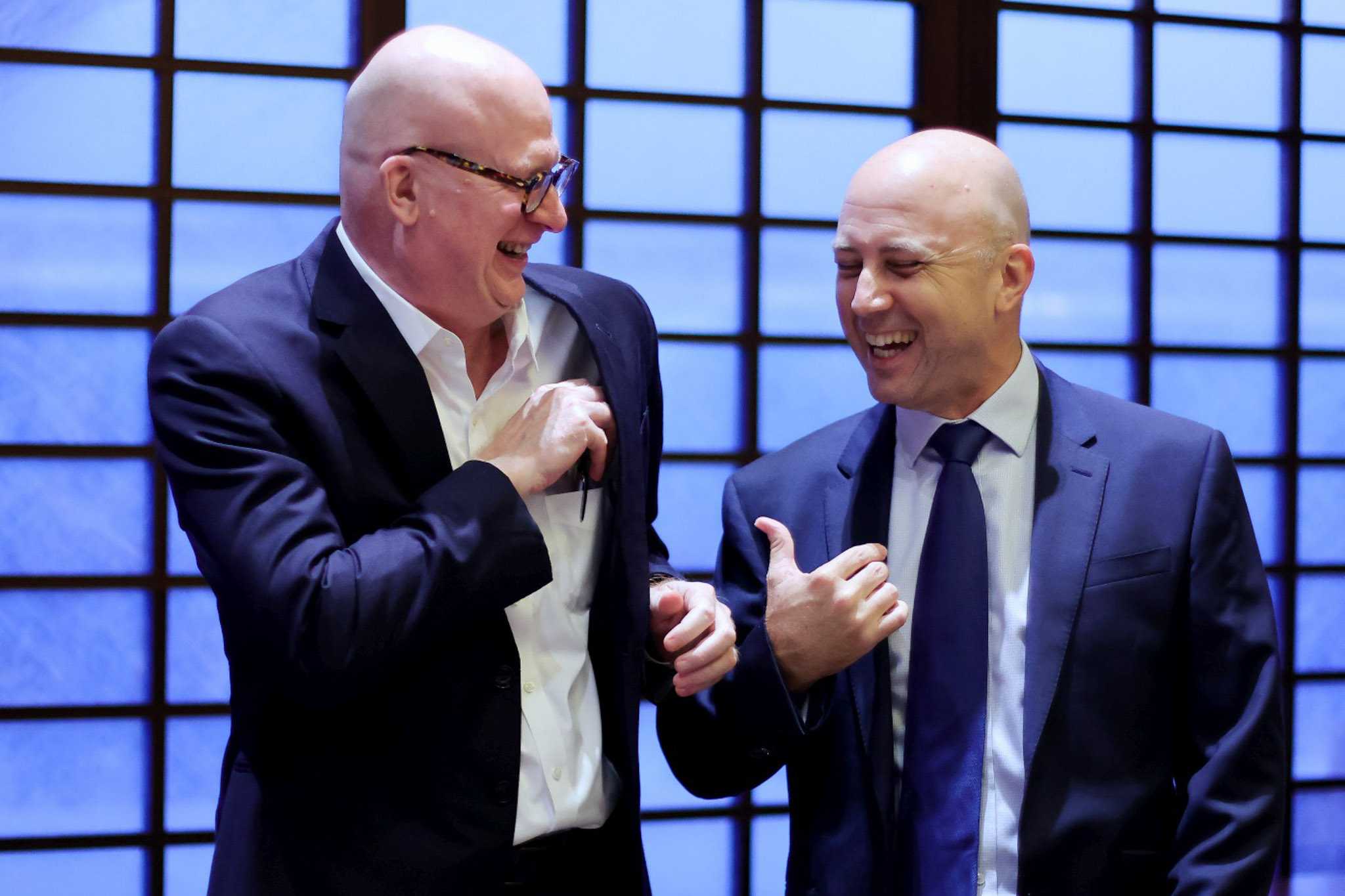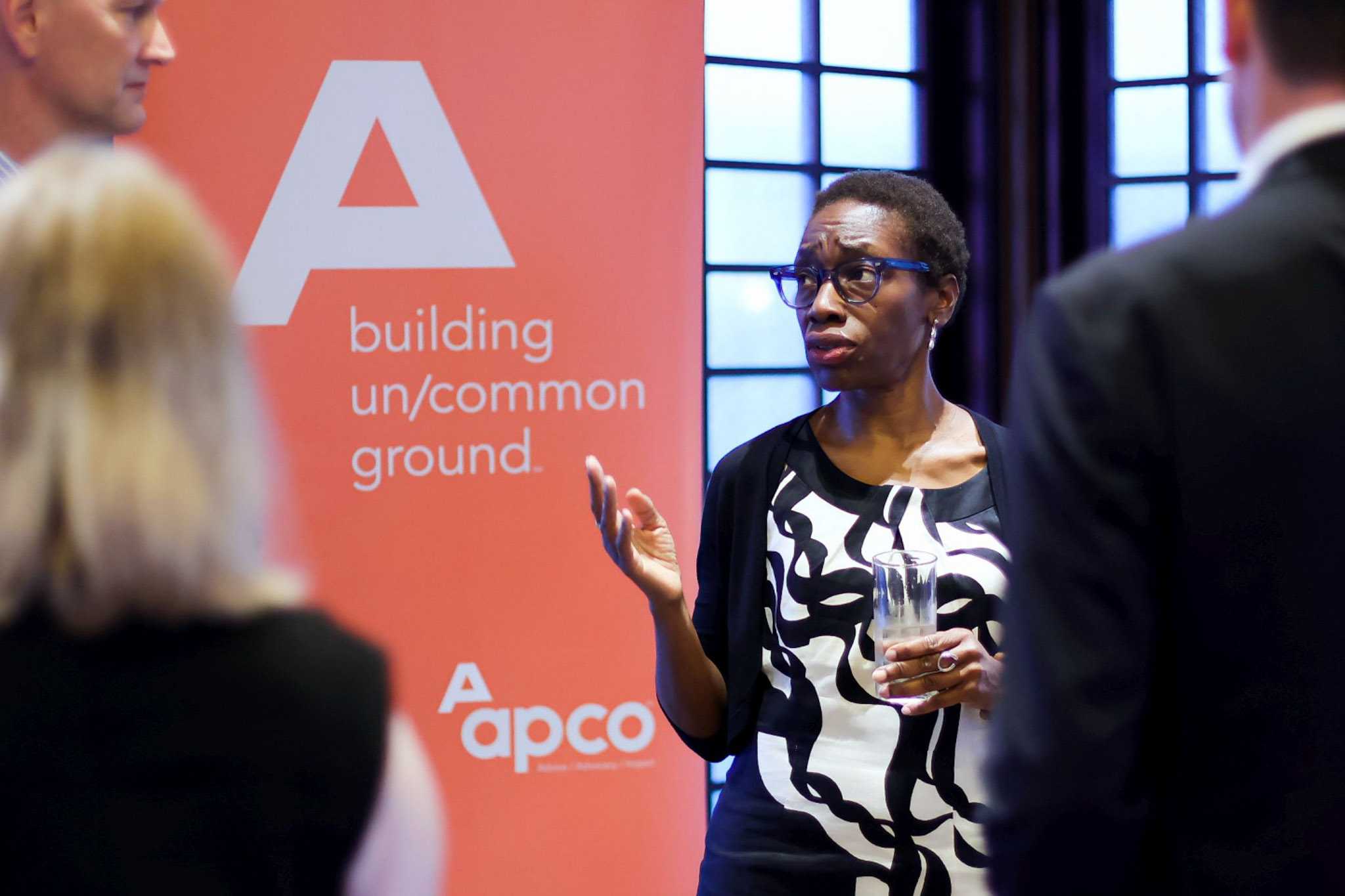
Unity Through Understanding: Navigating a Divided World to End All Conflicts
June 20, 2024
APCO alumnus Kandyce Ong authored this piece.
APCO is proud to be a member of International Crisis Group’s Global Corporate Council. Crisis Group is an independent organisation working to prevent wars and shape policies that will build a more peaceful world. It engages directly with a range of conflict actors to seek and share information, and to encourage intelligent action for peace.
Following the formal conclusion of the 2024 edition of the International Institute for Strategic Studies Shangri-La Dialogue Summit in Singapore, APCO sat down with Dr. Comfort Ero, president and CEO of Crisis Group, to explore challenges and opportunities for crisis management and conflict resolution in Asia-Pacific against a backdrop of multiple elections and increased militarisation across the region.
Crisis Group’s mandate is to prevent and resolve deadly conflict, including both major geopolitical crises and those that are at risk of falling off the international radar. We do so by combining our field-based research, analysis and high-level advocacy which helps us shape the policy decisions of key governmental and multilateral actors. We speak to all sides and work to sound the alarm on potential conflict situations, highlight opportunities for effective early action and draw attention to under-reported crises. Our proven track record over nearly three decades has made us a trusted and highly sought-after resource for policymakers across the globe.
I was struck by the sharp focus of China’s central role in the Indo Pacific during the Shangri-La Dialogue. Filipino President Ferdinand Marcos, Jr., for instance, pointed to how the U.S.-China rivalry is worsening tensions and creating new security dilemmas for the Philippines and its neighbours and also underscored that Chinese action that kills any Philippines national would be considered an “act of war.” U.S. Secretary of Defense Lloyd Austin also called out China’s tactics and contrasted Beijing’s approach with Washington’s, which he claimed was based on principles and beliefs rather than imposing one country’s will on others. Chinese Defence Minister Dong Jun, meanwhile, advised the region’s officials against “taking orders” from Washington and criticised the new leadership in Taiwan for “betraying” China. Despite that, the fact that the American and Chinese delegation met on the sidelines of the Shangri-La Dialogue speaks to the utility of such summits in fostering the communication between the competing powers, some which we have said is crucial to deconfliction and lowering tensions.
Ukrainian President Volodymyr Zelenskyy’s surprise appearance also highlighted his frustration at Beijing for its alleged assistance to Moscow in disrupting the peace summit in Switzerland that took place on 15-16 June. He criticised Beijing for pressuring other countries to not attend the talks and claimed that “China is an instrument in the hands of Putin.”
I was also impressed by the resolve of regional and resourcefulness of key actors in the region–including Singapore itself–at a time when shifting geopolitical dynamics can force smaller countries to side with one major power over another. These countries are wisely charting a more cautious path ahead, while also using their relations with major powers to ensure that all sides know where the tripwires are.
Myanmar is among Crisis Group’s priorities in the region, and we’ve been reporting on the upsurge in violence in the country triggered by the military’s 1 February 2021 coup d’état, which deposed the democratically elected Aung San Suu Kyi administration. The regime has brutally cracked down on protesters, killing hundreds and detaining thousands. Public sector strikes and other forms of civil disobedience prevented the regime from consolidating its control and plunged the country into a deep economic crisis. New forms of armed resistance by civilian militias and underground networks have emerged and in recent months, some of the country’s most powerful ethnic armed groups have gone on the offensive. Tensions in Rakhine State, on Myanmar’s border with Bangladesh, have significantly escalated with the Arakan Army greatly expanding its territorial control. Overall, Crisis Group works to understand the new violent dynamics across the country and mitigate the impact on the population.
Beyond our continuous work on the South China Sea disputes, which increasingly put the Philippines at the centre, we are keeping a close watch on the Bangsamoro peace process in the southern Philippines and maritime tensions in the Asia Pacific while also pushing for strengthened democratic institutions and promoting a more substantive peace dialogue in Thailand’s “deep south.”
Indeed. The world is confronting a “polycrisis”—a series of systemic, mutually reinforcing shocks (including climate change, economic distress and food insecurity) that intersect with a darkening geopolitical picture. Economic fragility, in particular, can cause severe political and social strains and deadly conflict.
At the same time, countries around the world are navigating a polycentric system of power. State-based power is growing more diffuse, and today’s array of multilateral institutions—whether the UN, international financial institutions or coalitions like the G20 or BRICS—do not fit together neatly.
This is an important time to take stock of the international financial institutions (IFIs) in particular and at Crisis Group, we’ve been clear in urging the World Bank and IMF to do more in order to shock-proof vulnerable states from destabilising forces, particularly those that include the multiple overlapping crises. Given how poor global economic conditions can create the dynamics for political crises, and how economic vulnerability translates to conflict risk, reform at the IFI level is necessary to address these challenges.
It is important to recognise the conflict dynamics as a consequence or a structural feature of some of the countries that IFIs intervene through loan assistance programs. IFIs’ strategies often also neglect or do not communicate well the potential conflict risks and their austerity-driven interventions can inadvertently heighten those threats further.
As the world grapples with intricate conflicts, the role of financial institutions in peacebuilding becomes paramount. The multilateral system may not be able to stop major wars, but it can and should offer protection for smaller, more exposed states and here is where the role of the IFIs comes in.
Indeed, as I mentioned above there are a set of overlapping challenges that contribute to the “polycrisis” we’re facing today. Climate change and its impact of conflict is a priority area for Crisis Group’s thematic work under our Future of Conflict Program. Half of the most climate-fragile countries also face violence and, as the world warms, climatic distress will play an increasingly central role in conflict. For fragile countries, building resilience to climatic shocks and the conflicts they intensify is often an uphill battle, primarily due to substantial financial constraints. Our workstream is divided into three thematic pillars, focusing on the most devastating climate security risks today and over the next two decades: cascading risks, displacement and transboundary water disputes.
To this end, we are developing a climate-security early warning system in the Horn of Africa called the Environmental Early Action and Risk Tracking Hub (EEARTH). This system will identify climate security risks early on and encourage anticipatory action to head off deadly violence, resource competition, food insecurity, climate-related displacement and other examples of climate fragility.
The inclusion of gender perspectives is also a core component of Crisis Group’s work. Our fieldwork demonstrates that intricate political transitions, long-running insurgencies and conflicts driven by competition for economic resources are often powerfully shaped by the differentiated roles and experiences of people of different genders. We believe charting these dynamics will provide policymakers with a rigorous, realistic and field-based view of how to take these varying realities into account in pursuing conflict prevention strategies and implementing their commitments with respect to the existing frameworks in the women, peace and security field. Concretely, our gender work includes standalone reports on the role of women in conflict—including as combatants—and on the impact of fighting on women and girls. We have also placed particular emphasis on ensuring we consider the gender dimensions of all of the conflicts we work on and reflect these considerations in our analysis.
We have also linked our work on gender to our efforts on climate and security, where we examine the ways that gender norms and climate change interact in conflict. For example, a 2023 publication on Kenya’s Rift Valley provided field-level insights into the gender dimensions of climate shocks, including the different roles of men and women as climate change places new pressures on pastoralist communities, the impact of unequal land rights and women’s limited access to community peace forums.
Increased political instability and the threat or onset of conflict continue to have a far-reaching impact on the international business environment, while a push from the Western world towards decoupling, or de-risking from China, creates new sources of political and economic uncertainty. The evolution of the private sector in the Asia-Pacific region will be characterised by a heightened focus on sustainability, innovation and collaboration. Companies will need to adapt to a dynamic environment by embracing corporate social responsibility, building resilience and fostering inclusive growth. Through these efforts and the engagement with organisations like Crisis Group and our Corporate Council, the private sector will play a crucial role in mitigating the impacts of conflicts and crises by supporting our efforts to end all conflicts.
